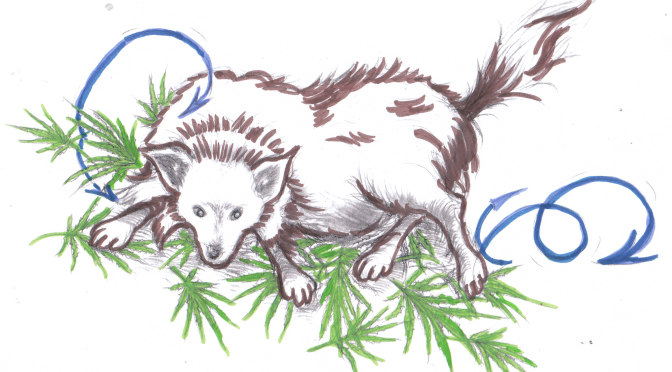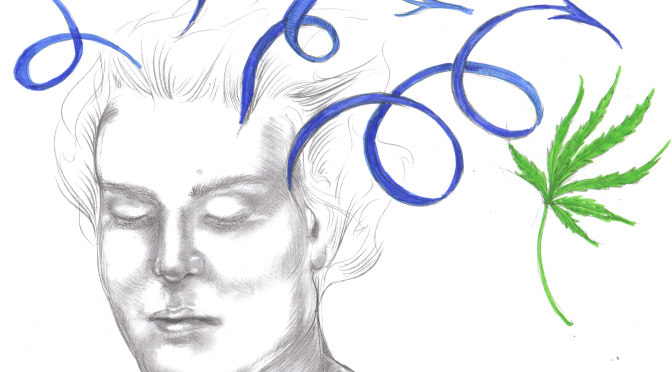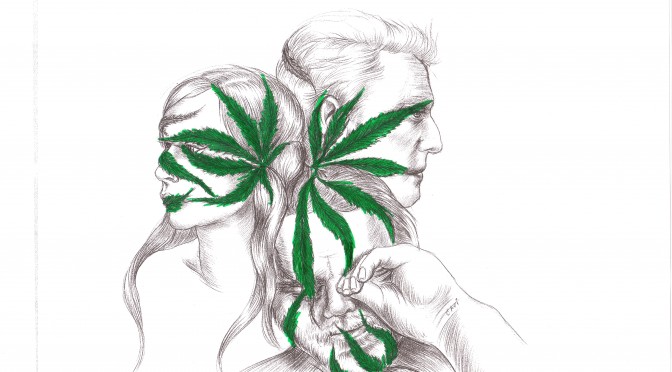(Part 2 of 4, an anonymous testimony submitted by a reader. Part 1) For a person who had never shown the slightest mental instability and then goes into an altered reality—literally overnight–disregarding a drug classified as “hallucinogenic” as a trigger is outrageous. Mental health treatments fail when the root cause(s) are ignored. The culprit was the mind-altering chemical in marijuana, THC, which today’s pot has been genetically modified to produce in outrageously high amounts.
Psychiatry has morphed over the last 30 years, placing medical management (prescribing pharmaceutical drugs), ahead of getting to the bottom of things. The best way to minimize an encounter with the psychiatric system is to never use mind-altering substances including marijuana, and all its derivatives, as well as brain stimulants like Adderall, anti-depressants and anti-psychotics.
When I kept questioning the rush to diagnosis my son and the failure to recognize the THC connection, even my work colleagues (pharmacists, physicians, and nurses) would say: “This is about the right age when they break.” Or “Just accept what your son has — a mental illness.”
The out-patient psychiatrist was even worse. He charged $250/session and took no insurance. At the only family session after Ryan was released, I questioned why would they diagnose him with bipolar depression since it has a high familial link? This doctor refused to answer me but eventually mumbled in response, “environmental,” which may mean he knew that THC can alter young brains. (Bipolar 1 is the term used today, distinguished from Bipolar 2, if the mania is longer or more severe and/or the person has a manic episode before having depression.)
Nothing made any sense to me, and the nightmare continued. My daughter-in-law’s family was immersed in the belief of mental illness. “My whole family has bipolar problems,” her mother stated. No big deal, his wife said, though Ryan came back to normal after 10 weeks. My husband and I went to several psychiatric doctors trying to find a more reasonable physician who would look at the whole picture, but all followed the same philosophy. I even challenged them with the American Psychiatric Association’s classification system which qualified a bipolar I diagnosis as inaccurate when illicit substances are in evidence. (At the time, the DSM IV manual was the classification guide for psychiatry.) Mothers like me read everything and know when a diagnosis doesn’t hold. Denial was going on, but I don’t think the “experts” understood who was in denial.
No one ever suggested Ryan had addiction or dependence on pot or any drugs. I asked several times, as my thinking was that anyone who had basically had a brain break should go for rehab/counseling. These ‘experts’ reassured us,” Ryan is just a recreational user.” I kept researching and showed my son and his wife the volumes of research about the marijuana-psychosis link. I told them, “If Ryan ever goes near any mind-altering substance again, it could trigger schizophrenia.” At the time, I was unfamiliar with the “skunk” strains of pot, and didn’t know most of their friends were using it.
In mental health programs, if there is presence of THC or other drugs in the toxicology report, please give the patient the education to help them understand addiction and how the brain works. The attending physician should be certified for Addictions Treatment. I’ve read there should be at least a six-month wait to fully evaluate a person’s mental health function after stopping the substance, but it didn’t happen for Ryan.
Back to Normal? How Long?
My son’s wife dutifully gave Ryan his medicine — not that I believe any of them helped him come out of psychosis faster). Ryan gained 55 lbs. in 5 months, leaving stretch marks all over his statuesque physique. Our son had gained so much weight, complained of “brain fog” and once out of psychosis weaned himself off the meds. In total, he spent five months on the anti-psychotics.
I never believed my own kid would ever go near another mind-altering substance again. Neither my husband nor I had ever touched an illicit substance in our lives. Sadly, parents who think they raised their kids sensibly, spent quality time with them and modeled a healthy lifestyle, can be woefully unaware of “today’s culture.” The drug is everywhere; one in six teens who use marijuana become addicted to it.
We found out later that some close friends were using pot so Ryan was persuaded to start using “recreationally” at age 19. About that time, he began dating the girl he married, also a user, but not someone I’d expect to be into pot.
Sad for me, when I met individually with Ryan’s five close friends, each called him “best friend,” because he gave everything of himself to his friends. Some “fessed up” to using marijuana with Ryan. One said, “But he never did the really bad drugs like I’ve done.”
Ryan’s dog had seizures about a month before our son’s second “episode” of psychosis. Long story short–I helped my daughter-in-law get their dog to the family vet. She told the veterinarian their dog had eaten snail bait, but he disagreed. I had no knowledge my son had returned to pot, and his wife didn’t share that fact. Indeed, now I realize that their dog had found their bag of pot. The vet told us it was not epilepsy, as I thought. He was unsure if he would be able to save this dog. Following an expensive intravenous (IV) hydration, the dog survived.
After Ryan experienced his next breakdown, he confessed, “Jodie had eaten pot before his seizures began.” Later, the vet assured me “Pot doesn’t cause seizure, but makes dogs lethargic, sleepy.” Several months ago, a Colorado veterinarian wrote an article in the LA Times about the escalating number of dogs having seizures from contact with pot edibles. I marched the article to our vet, grabbed his arm and implored him to educate himself and spread this information to his colleagues.
If our family vet had recognized the symptoms of today’s pot which causes seizures, and if I had been sharp enough to have asked the vet to do a drug screen, we could have made a difference. But, we didn’t realize that Ryan had gone back to using pot, thinking he had beaten the addiction. (Parts 3 and Parts 4 will follow. Part 5, to be published in December, will explain how the author has helped others with her knowledge.)



